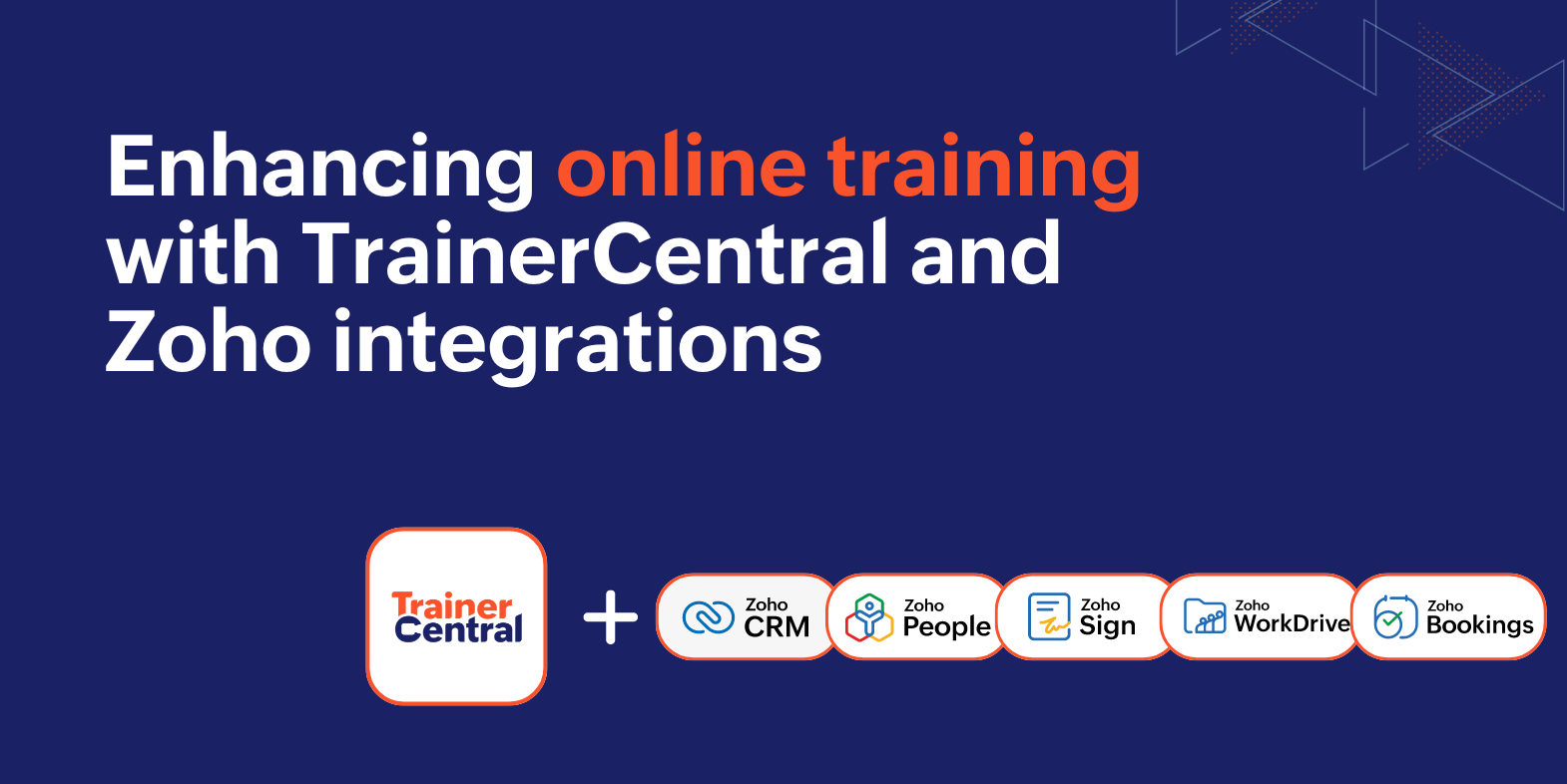- HOME
- Product news
- Soft skills for employees in the workplace: The what, why, and more
Soft skills for employees in the workplace: The what, why, and more
- Last Updated : September 11, 2024
- 504 Views
- 9 Min Read

Let's assume you're a hiring manager, and you've shortlisted two candidates for a tech role. While both candidates possess similar tech skills, one of them requests a slightly lower pay. But the other candidate has great soft skills. Which one would you pick?
If you choose the candidate with the better soft skills, BRILLIANT. It looks like you already know the importance of soft skills in the workplace.
Today, many organizations consider soft skills to be a key differentiating factor when hiring new employees because being technically sound can only get the job done. But soft skills ensure the job is done more effectively, collaboratively, and with the flexibility to adapt to unforeseen challenges.
This article is all about soft skills for employees in the workplace, why it's important, and how organizations can effectively provide soft-skill training for employees.
What are soft skills?
The term soft skills refers to the personal attributes one must possess to interact effectively with others in a workplace. Soft skills go beyond hard skills (the technical skills to perform job-specific tasks) and define your way of working.
Soft skills, also known as interpersonal skills or people skills, are the key to building healthier relationships, effective communication, and seamless problem solving in the workplace.
Unlike hard skills, soft skills cannot be measured or quantified. Today's competitive world has made soft skills essential to achieving professional success.
According to LinkedIn's Global Talent Report, 80% of hiring managers believe that soft skills are increasingly vital in the modern business landscape. And 92% stated soft skills matter as much or even more than hard skills.
Some of the most important soft skills in the workplace are communication, leadership, and teamwork. All of these skills together define and drive your success in the workplace.
Soft skills your employees should posses
There are many soft skills, each one proving to be vital for employee effectiveness.
We've listed the most important soft skills in the workplace for employees. So, the next time you hire a candidate, make sure he or she checks the boxes on this list.
1. Verbal communication
There's a famous quote about communication by Jim Rohn:
“If you just communicate, you can get by. But if you communicate skillfully, you can work miracles.”
Communication, as a soft skill, has significant importance in the workplace. The art of clearly expressing thoughts through spoken words ensures that everyone within the organization is working towards the same goal.
A manager who can communicate the weekly tasks clearly and set expectations gives teams the head start they need.
2. Non-verbal communication
Verbal communication, when combined with effective body language, gestures, and facial expressions, helps convey messages more clearly. This is called non-verbal communication.
3. Writing skills
Statistics by Inc. states that 73% of employers want candidates with writing skills.
Writing clearly, without any grammar or syntax errors, is important for drafting email copies, presentations, and sales pitches, making it one of the most important soft skills on this list.
4. Active listening and empathy
The ability to listen actively, interpret non-verbal cues, and respond with empathy can go a long way in building healthy relationships. Employees who understand co-workers' emotions by putting themselves in their shoes are key to building a positive workplace.
5. Collaboration
According to WifiTalents, 75% of employees rate teamwork and collaboration as "very important."
The ability to work together in groups is the foundation of teamwork. Your employees should be able to engage in team projects and work with diverse personalities.
6. Out-of-the-box thinking
Innovation and creativity are critical to setting your brand apart from the competition. Candidates with the ability to think out of the box can do wonders in their job.
For instance, a creative ad campaign will not only boost your brand awareness but also drive sales and revenue.
7. Ability to adapt
Adaptability is one of the most important soft skills for professionals. Whether it's switching to a new team or a new software, your employees should be open to embracing change and welcoming opportunities.
This will make your organization brim with diverse skill sets and ready to try new processes.
8. Decision making
Employees who have the ability to make effective decisions by evaluating different options and considering the benefits and consequences are game changers for your company.
Empowering employees to make decisions will not only boost overall productivity but also instill a sense of ownership for them.
Decision-making, although important for all employees, is a key soft skill leaders should possess.
9. Conflict resolution
Workplace conflicts are inevitable, especially when the team is diverse and innovative. But what really matters is how the conflicts are resolved.
Strong conflict resolution skills include receiving and giving constructive criticism and discussing matters at hand in a civilized manner. This promotes healthy relationships between employees, and productivity remains steady despite conflicts.
10. Appreciation
A study by Gallup reveals that employees who receive great recognition are 20 times more likely to be engaged when compared with employees who receive poor recognition.
Recognizing employees for their work and appreciating them is an important soft skill for organization leaders. This motivates employees to work better and be more innovative while improving their productivity.
11. Dependability and reliability
Simply put, an employee who is dependable and reliable builds the trust factor within the organization. These employees are capable of building stronger work relationships and a streamlined workplace setting.
12. Time management
Time management is an important soft skill all of your employees should have. Employees who can plan, prioritize tasks, and deliver on time are vital for organization success.
Effective time management ensures that all projects are completed well ahead of deadlines and embrace any unforeseen changes at the last minute.
13. Public speaking
Public speaking is a personal trait every employee should have. Employees who have these skills clearly communicate their ideas to internal stakeholders and are beneficial in delivering public presentations.
Public speaking is a non-negotiable skill for leaders—conferences, meetups, and employee motivation.
14. Continuous learning
Rapidly evolving technology has created the need for employees to learn continuously. Employees who learn and adapt to the latest trends can easily face new challenges that come their way.
15. Negotiation
Negotiation is another important soft skill in the workplace that's often ignored.
The skill of negotiation plays an important role when collaborating with external vendors or establishing new partnerships. By finding common ground for both parties and creating a win-win situation, long-term relationships are established.
These are some of the most important soft skills in the workplace. When hiring employees for your organization, you should ensure they have the necessary soft skills needed to perform their roles smoothly.
The importance of soft skills in the workplace
While soft skills enable employees to work efficiently, how does it help organizations?
Enhanced collaboration
When your employees have the necessary soft skills like communication, active listening, innovation, and empathy, it sets the ground for effective teamwork and collaboration.
As a result, organizations benefit from increased productivity, better problem solving, more innovative ideas, and on-time project completion.
Improved customer relationships
Employees with great communication, listening, and conflict resolution skills can understand customer concerns better and provide personalized resolutions.
Personalized solutions lead to increased customer satisfaction, loyalty, and customer lifetime value.
Increased productivity and work efficiency
Efficient time management, decision-making, and the ability to adapt can make workplaces more productive and efficient.
Faster project completion times, less room for errors, reduced downtime, and increased overall performance are some of the benefits when employees become more productive.
Higher employee retention rates
Employees with great soft skills like conflict resolution, active listening, and leadership skills contribute to a healthy work culture. In return, organizations witness a higher employee retention rate and positive word-of-mouth recommendations, making it easy to access the talent pool.
Long-term success
Together, all of the benefits of soft skills in the workplace will result in the long-term success of your organization.
A company that's productive, collaborative, innovative, and has a positive work environment is well-equipped to push the standards higher and emerge as a strong competitor in the market.
How can employees acquire soft skills?
Not all employees have great soft skills, and that's especially true for new employees. So, how can they acquire soft skills and excel in them?
Among the many ways to acquire soft skills, we're sharing the most effective ones here.
Learning while working
On-the-job training is one of the best ways employees can develop soft skills. Employees, in their day-to-day roles, come across multiple scenarios where they realize the significance of soft skills in the workplace.
This puts them in a place where they want to become better at soft skills. The more they engage with the team, interact with clients, and work on projects, they naturally build their communication, collaboration, conflict-resolution, and other soft skills. Over the time, they'll only get better.
Mentorship
This is a common practice in organizations where new employees are assigned a mentor within the company. Usually, the mentor is a person who has significant work experience within the firm that they've earned after long tenures.
Mentors can share their experiences, guide employees, and provide constructive feedback, which helps the employees understand and learn.
The success of this method depends solely on the mentor's efficiency because sometimes the training is all about product knowledge and little to no soft-skills training.
Soft-skills training programs
Creating your own soft-skills training programs is the best way to ensure that your employees get the necessary soft-skills training to perform in their roles with excellence.
Sometimes, when employees try to hone their soft skills, they search for online courses and training programs. In the process, they get lost or fail to follow a structured learning path. This makes things more difficult than they usually are and can frustrate employees.
But, when organizations create soft-skills training programs or courses for their employees, it gives them a structured path to learn, making soft-skill development easy and effective.
According to Lorman, 76% of employees say that a company would be more appealing if it offered additional skills training to its staff.
Your employees are willing to learn—you just have to provide them with the opportunities.
So, how can you do this? Keep reading to find out.
How can TrainerCentral help provide soft-skills training for your employees?
TrainerCentral is an employee training software that empowers businesses of all sizes to provide training for employees.
The platform is highly sophisticated, effortless to use, and comes with numerous features to train employees.
Here are some key features of TrainerCentral, making it an ideal option for employee soft-skills training.
Seamless course creation
One of the key features of TrainerCentral is the ability to create courses while you're on the go.
You can create engaging employee training materials with images, videos, presentations, and even leverage the AI-powered course builder to structure courses and generate content.
Some soft skills training topics for you to build courses on are:
- Communication skills
- Active listening and empathy
- Conflict resolution
- Teamwork and collaboration
- Leadership
- Innovation and creative thinking, and many more
With TrainerCentral, you can create single courses, bundle multiple courses together, and even categorize courses according to your needs.
Live sessions with employees
While soft-skill development courses provide great knowledge, interactive live sessions take it to the next level.
Trainers can host live sessions and conduct real-time training with engaging activities like group sessions, role-playing activities, simulation scenarios, and more. Trainers can also provide personalized feedback by connecting with employees in real time.
TrainerCentral ensures your soft-skills training sessions are engaging with features like surveys, polls, chat rooms, and whiteboards.
Tests and assessments
To ensure your employees are making the best out of your soft-skills training courses, TrainerCentral allows you to include tests and assessments in your courses.
You can choose from multiple types of tests (choose the best answer, true or false, essay, and more) and create assignments to assess your employee understanding.
Learner tracking analytics
You can also understand how your employees are progressing with TrainerCentral's detailed analytics and tracking tools.
Metrics like engagement levels, completion percentage, time spent on courses, and more enable you to track learner progress accurately and tailor experiences.
Customized learning paths for individuals
Customization is one of the best parts when you use TrainerCentral to provide soft-skill training for employees.
Organizations can identify employees who need to improve certain soft skills and assign them only those courses. This paves the way to personalized soft-skills training within the organization.
Mobile-based learning
TrainerCentral makes learning possible beyond desktops. With a dedicated mobile application, employees can engage with the organization's soft-skills training programs while you're on the go.
Mobile applications give employees the flexibility to learn within their busy schedules and ensure that their learning progresses without any hindrance.
All of the features mentioned above make TrainerCentral one of the best solutions to provide soft-skill training for your employees.
Final thoughts
Soft skills have become increasingly important in the workplace. Organizations with employees who possess great skills contribute to creating a dynamic, productive, and healthy work environment. This makes the organization adapt to theconstantly changing needs of the business landscape, compete against the leaders, and thrive.
Investing in soft-skills development will not only improve your employees' productivity but also drive your business's long-term success.
Start creating soft-skills development courses for employees with TrainerCentral now!


